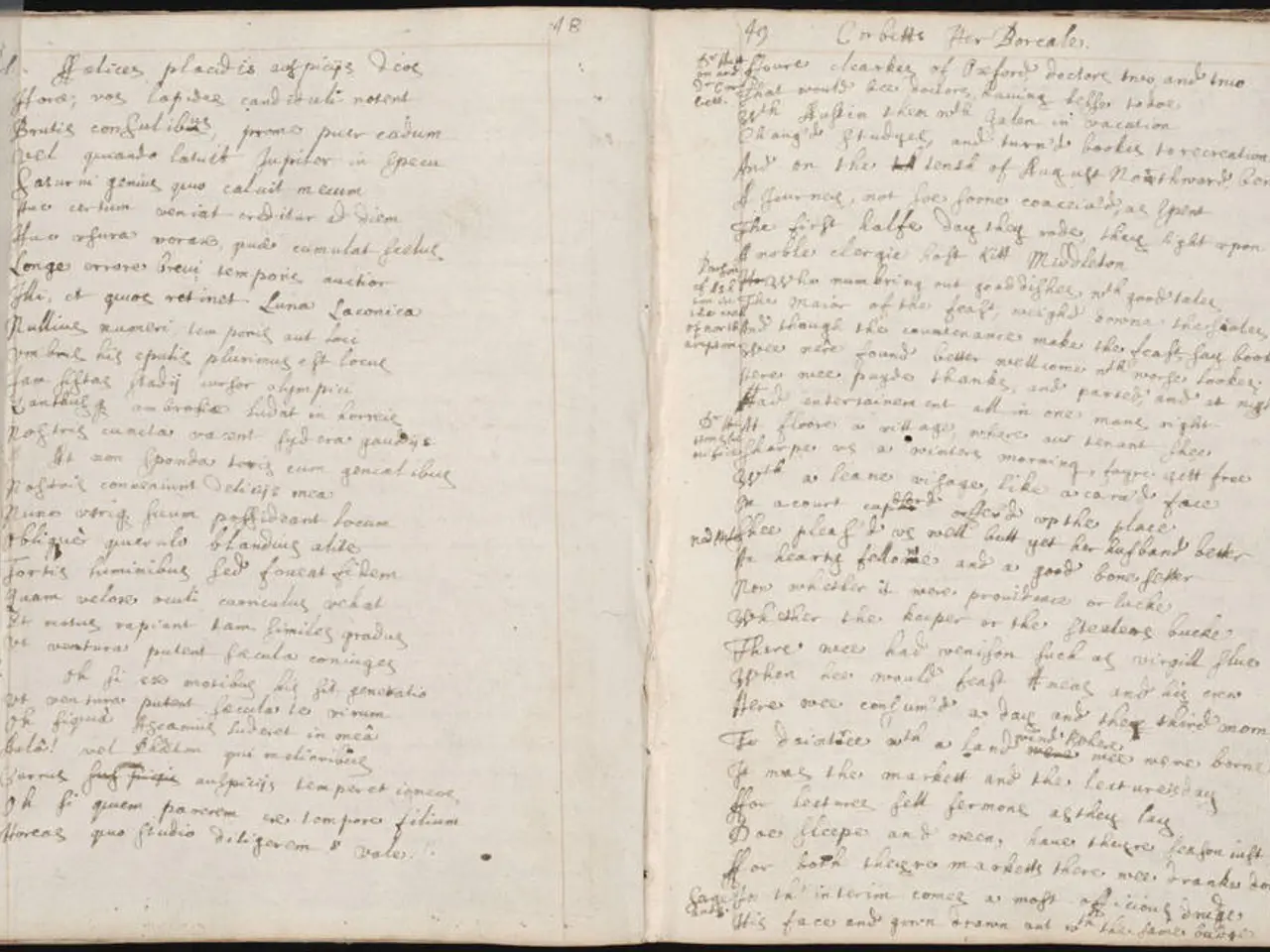World's Top-Selling Author in Global Literary Charts: An In-Depth Look at Agatha Christie
Agatha Christie, born on September 15th, 1890, in Torquay, England, was destined to become one of the most celebrated mystery authors of all time. Raised in an upper-class family, Christie's early life experiences profoundly shaped her development as a renowned author.
Born to wealthy socialites Frederick Miller and Clarisa Boehmer, Christie received a home education from her mother, who had a unique and influential personality. Her happy and harmonious childhood, spent in a stimulating environment with her witty father, imaginative mother, and older siblings, fostered her creativity and love of writing from a young age. Christie would often spend her days running along the coastlines, making up stories in her head.
During her time at a boarding and finishing school in Paris, Christie cemented her love of the arts and literature through visits to many of the city's famous museums and literary spots. It was here that she discovered the works of Edith Nesbit, Mrs. Molesworth, and Lewis Carroll, authors who would inspire her own writing.
As World War I approached, Christie returned to England and began working as a nurse and later in a hospital pharmacy. Encouraged by her older sister Madge, who challenged her to write a mystery with an unpredictable ending, Christie developed her first novel featuring detective Hercule Poirot, The Mysterious Affair at Styles. This period of service exposed her to knowledge of pharmaceuticals and poisons, which she skillfully incorporated into her plots.
Agatha Christie's persistence despite early rejections—her first six books were not accepted initially—reflects her determination and dedication, likely supported by the confidence gained from her stable early life. In the 1930s, she released some of her most famous books, including "Murder on the Orient Express" (1934), "Death on the Nile" (1937), and "And Then There Were None" (1939).
In 1930, Christie met Max Mallowan, an archaeologist, during a visit to Ur, Iraq. The two married six months after their initial meeting and remained married until Christie's death. Christie's travels with Mallowan allowed her to meet diverse and interesting people, whom she often used as inspirations for characters in her novels.
Agatha Christie's extensive knowledge of poisons earned her the title of "poison master" during World War II. She rejoined a pharmacy during the war and her later novel, "The Pale Horse", solved a thallium poisoning case in 1977.
Throughout her life, Christie continued to write prolifically, publishing 75 novels under her name, including collections of short stories, and had sold over two billion copies of her books. In 1956, she was appointed Commander of the Order of the British Empire and awarded an honorary Doctor of Literature degree by the University of Exeter in 1961. In 1971, she was promoted to Dame Commander of the Order of the British Empire by Queen Elizabeth II.
In her later years, Christie established The Agatha Christie Trust for Children, a charitable organization aimed at helping the elderly and young children. Agatha Christie died peacefully on January 12th, 1976, at age 85.
Christie's success as the "Queen of Mystery" can be attributed to her home education, world war service, family encouragement, and exposure to varied social milieus through travel. Her ability to incorporate her unique experiences and knowledge into her stories set her apart and made her one of the most beloved authors of the 20th century.
Agatha Christie's home education, shaped by her mother's unique personality and stimulating upbringing, fostered a love for literature from an early age.
Her time in Paris solidified her passion for the arts, as she discovered various influential authors like Edith Nesbit, Mrs. Molesworth, and Lewis Carroll.
Christie's work in a hospital pharmacy during World War I, combined with her sister's challenge to write a mystery, led to the creation of her famous detective, Hercule Poirot.
As "the Queen of Mystery," Agatha Christie's extensive travel experiences, along with her expertise in poisons, added a unique flavor to her crime literature featuring diverse characters and unpredictable plots.
In her later years, Christie showcased her continued dedication to literature by establishing The Agatha Christie Trust for Children, further solidifying her place as a prominent figure in the realms of mystery, fashion-and-beauty, lifestyle, books, entertainment, and history.







